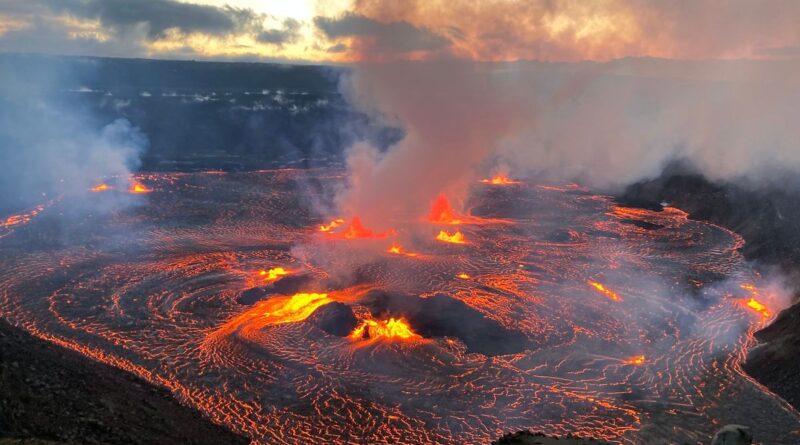As tourists flock to view Kilauea's latest eruption, Hawaii urges mindfulness
HONOLULU (AP) — Hawaii tourism officials urged tourists to be respectful of cultural and spiritual meanings when flocking to a national park on the Big Island to get a glimpse of the latest eruption of Kilauea, one of the world’s most active volcanoes.
Kilauea, Hawaii’s second-largest volcano, began erupting on June 7 after a three-month pause. Word of its lava fountains spread quickly, bringing crowds to Hawaii Volcanoes National Park.
“Expect major delays and limited parking due to high visitation,” said a warning on the park’s website Thursday.
The U.S. Geological Survey’s Hawaiian Volcano Observatory on Thursday lowered Kilauea’s alert level from warning to watch because lava flow declined and no infrastructure is threatened. The eruption activity is confined to the closed area of the park.
“Out of respect for the cultural and spiritual significance of a volcanic eruption and the crater area for many kamaʻāina, the Hawaii Tourism Authority urges mindfulness when planning a visit to the volcano,” the Hawaii Tourism Authority said in a statement Wednesday night, using a Hawaiian word often used for Hawaii residents.
For many Native Hawaiians, an eruption of a volcano has a deep yet very personal cultural significance. Some may chant, some may pray to ancestors and some may honor the moment with hula.
Several thousand viewers were watching the U.S. Geological Survey’s livestream showing red pockets of moving lava Thursday morning.
“We were on social media, and we saw that it was actually going off while we’re here, so we made the drive from the Kona side” Andrew Choi, visiting with his family from Orange County, California, told the Hawaii Tribune-Herald. “This feels so ridiculously lucky. We’ve never seen anything like this.”
Park officials suggested visiting at less-crowded times before 9 a.m. or after 9 p.m.
Scientists expect the eruption to continue and remain confined to Halemaumau crater in the park.
Early Wednesday, lava fountains were as high as 200 feet and decreased to 13 to 30 feet in the afternoon, according to the observatory.
Source: Read Full Article


